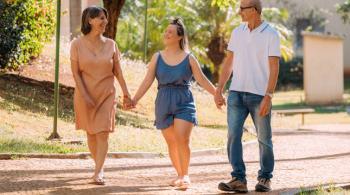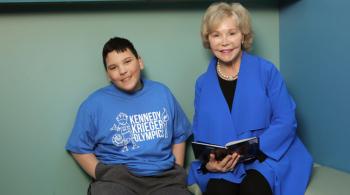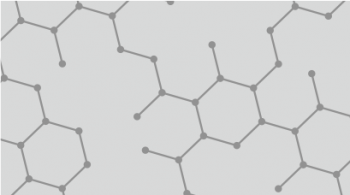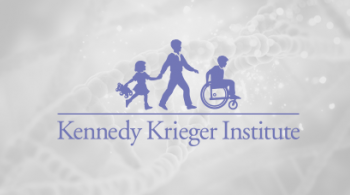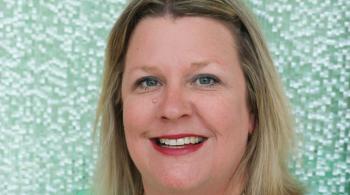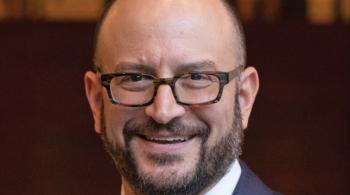By Tracy Waller, Esq., MPH
In September 2019, the Administration for Community Living (ACL) awarded a three-year, $500,000 grant to the MCDD to establish the Center for Dignity in Healthcare for People with Disabilities (CDHPD). Eight national coalition partners collaborated on the project, with the goal of identifying and reducing life-limiting healthcare inequities for people with intellectual and developmental disabilities (IDD) by improving access to antidiscrimination medical protocols.
The coalition partners consisted of five University Centers for Excellence in Developmental Disabilities (UCEDDs) and three national advocacy and medical organizations. Kara Ayers, PhD, the associate director of the University of Cincinnati Center for Excellence in Developmental Disabilities, was the principal investigator (PI) of the project. The other project UCEDDs were the University of Kentucky Human Development Institute, the Vanderbilt Kennedy Center, The Boggs Center on Developmental Disabilities and the MCDD. The national advocacy and medical organizations were the American Academy of Developmental Medicine and Dentistry (AADMD), the Autistic Self Advocacy Network (ASAN) and Family Voices (FV).
The CDHPD had four objectives:
- Increase understanding of gaps in existing curricula, policies and guidelines around medical discrimination
- Increase access to antidiscrimination protocols codeveloped by self-advocates and family members
- Increase informational access on barriers to healthcare and the value of improved life outcomes for people with IDD
- Increase support for families and individuals with IDD to defend against health/healthcare discrimination
Along with specific objectives, the CDHPD also chose to focus on four areas of healthcare inequity:
- Prenatal diagnostic testing
- Organ transplantation
- Aging and end of life
- Mental health and suicidality
The CDHPD began its work in late 2019 with a gap analysis of each of the four identified focus areas, which produced a 164-page document in October 2020. The group conducted the gap analysis by creating an online database of research already existing in each topic area, and then, through analysis and synthesis of data, identifying five to six gaps per focus area.
The CDHPD then created four subcommittees and engaged in a national recruitment effort of members through coalition partners. Based on the gaps identified in each focus area, four of the subcommittees created two versions of recommendations—one to distribute to medical professionals and one to distribute to people with disabilities and their advocates.
In addition to the subcommittees, the CDHPD established a Center Advisory Board (CAB) of 17 members comprising coalition partners, representatives from each medical discrimination issue, family members, individuals with IDD and medical professionals. The CAB members were recruited through coalition partners, networks, listservs, Facebook and personal connections. The CAB met quarterly and provided the CDHPD with knowledge, expertise and input on the CDHPD’s activities.
The CDHPD added a COVID-19 work group in early 2020. During the pandemic, the work group created fact sheets, toolkits and social stories in English and Spanish, including information about getting a COVID-19 vaccine, common questions about the COVID-19 vaccine and ways to mitigate discrimination. The CDHPD continued to provide vaccine information in accessible formats throughout the height of the pandemic, including the creation of dashboards. The CDHPD co-created a Vaccine Prioritization Dashboard with The Johns Hopkins University Disability Health Research Center, and the CDHPD maintained a dashboard providing information on each state’s school mask mandate.
Throughout the three years of the grant, in addition to the recommendations, the CDHPD produced nine fact sheets, hosted three webinars, posted 12 blogs, was featured several times in the media, signed on to or commented on eight letters or comments, had its PI invited to the Presidential COVID-19 Health Equity Task Force, produced several social stories, and maintained a social media presence on Facebook and Twitter. The CDHPD also established and maintained a website at centerfordignity.com, where all the CDHPD’s work can be found. This website will remain available after the end of the grant period.
Throughout the CDHPD’s three years, its members have presented at several national conferences. Its final presentation will be on the culmination of the project and will be given at the Association on University Centers of Disabilities (AUCD) Conference in November 2022.
Future publication in scientific journals is likely, but the CDHPD has prioritized disseminating its recommendations in formats accessible to the general public, including easy-to-read versions. Recommendations from each of the four subcommittees will be published on the CDHPD’s website. Additionally, CDHPD members hosted four webinars in September 2022, each one focused on a different subcommittee’s work.


